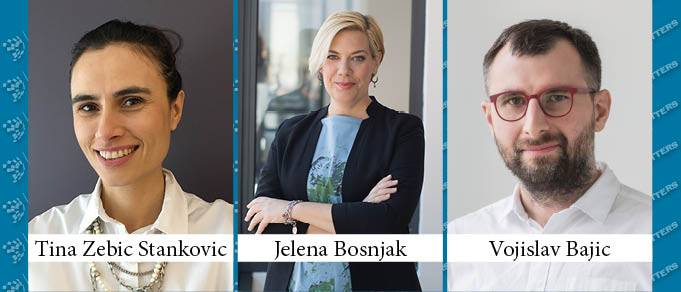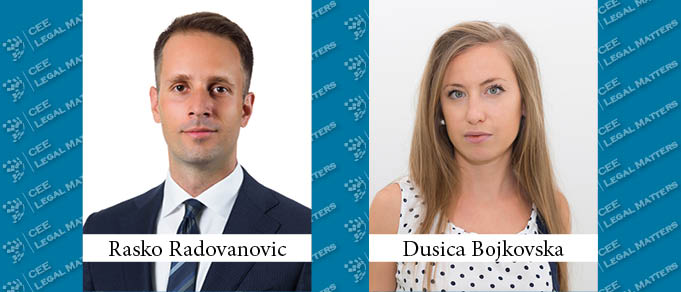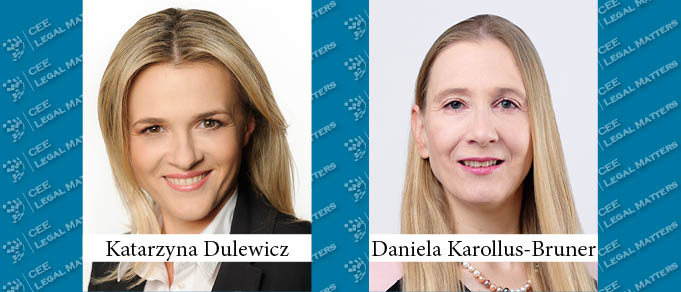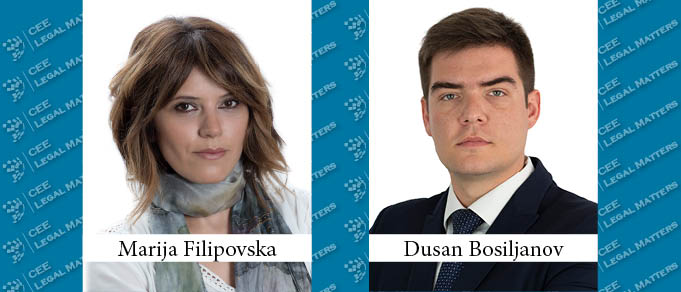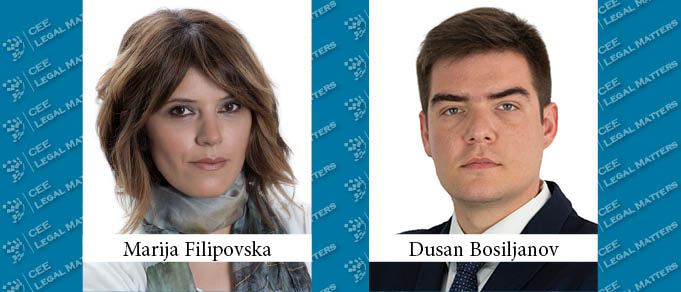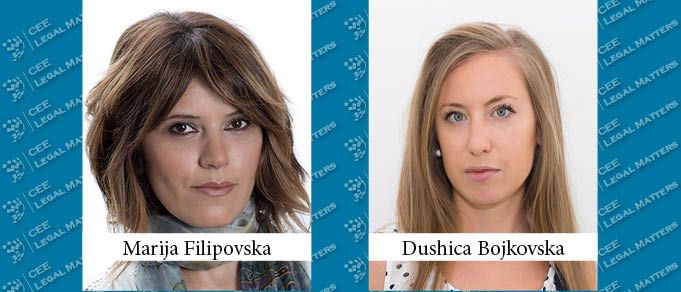If certain statutory conditions are fulfilled, companies obliged to pay the Macedonian Corporate Income Tax (CIT) should submit reports for their 2019 transactions with related parties to the Public Revenue Office before September 30, 2020. The 2019 financial year is the first for which CIT payers are obliged to file such reports, according to the CIT Law.
Marketing with One Arm Tied Behind Your Back: Attorney Advertising Bans In the Former Yugoslavia
Advertising is no easy task for law firms in the former Yugoslavia, and law firm marketing and business development specialists in those legal markets face unique challenges in their attempts to promote their firms and obtain new clients.
Guest Editorial: Navigating the Crisis in the Western Balkans
The COVID-19 pandemic hit the Western Balkans right during a period of accelerating economic activity and a promising economic outlook for 2020. The rapid spread of the virus forced the governments of the Western Balkans countries to introduce protective measures, lockdowns, and temporary business shutdowns. These restrictions had a devastating direct economic impact on a wide range of sectors – particularly the hospitality and transport industries – and the measures had many indirect side effects that significantly decreased economic activity.
Gun-Jumping in M&A Transactions in North Macedonia
In merger control, the standstill obligation requires that the parties refrain from implementing a concentration before obtaining the required merger clearance. This duty represents a cornerstone of many merger control regimes and is intended to protect the structure of the market and the consumers from any damage that could result from a transaction that had not been properly examined and could turn out to be anti-competitive.
Rebuilding and Reshaping in the Aftermath of COVID-19
As Europe begins a tentative re-opening following several difficult months of quarantining, social distancing, and working-from-home, we spoke to CMS’s Warsaw-based Employment Partner Katarzyna Dulewicz and Vienna-based Dispute Resolution Partner Daniela Karollus-Bruner for their perspective on the process.
Strategic Investments in North Macedonia – New Opportunities for Potential Investors in Renewables
The adoption of the new Law on Energy of North Macedonia in 2018 established the foundations for stability, competitiveness, and economic functionality of the energy sector. In addition, the Energy Law declared the promotion of renewable energy sources and encouraging energy efficiency a priority. This, in a short time, has contributed to increased investment in the field of renewables.
North Macedonia: Medical Cannabis in North Macedonia
Cultivation of medical cannabis has become a lucrative business in recent years. Countries around the world have started legalizing this controversial crop, approving medical cannabis in particular in some capacity. In 2018, Canada made history by passing the Cannabis Act, thus becoming the first industrialized nation in the world (and second overall, after Uruguay) to pass legislation allowing adults to purchase marijuana. In addition, over 33 states in the USA have made the use of cannabis legal for medical purposes.
Capital Markets in North Macedonia
Contributed by ODI Law.
CEELM Covid-19 Comparative Legal Guide: Contracts in North Macedonia
Contributed by Knezovic & Associates, member of Adriala
“Little Schengen” Project in a Nutshell – What Does It Mean For Your Business?
If the Western Balkan countries are in your business spotlight, you must have heard about the “Little Schengen” project that was discussed between the governments of Albania, Serbia, and North Macedonia, and the signing of the consequent Declaration on Establishment of Free Movement of People, Goods and Services on October 10, 2019 between the leaders of these countries (“Little Schengen Declaration”). Although it may be argued that the “Little Schengen” project comes as an answer to the fact that the “Big Schengen” is still out of the reach for these Balkan countries, closer economic cooperation between the Western Balkan countries is a trend that’s being going on for a while. In particular, four months prior to the signing of the Little Schengen Declaration, North Macedonia and Serbia signed an agreement to establish joint controls at the border crossing point of the road between North Macedonia and Serbia (the “Bilateral Agreement”).
Inside Insight: Jasmina Ginoska of Eurostandard Bank
An interview with the long-time Head of Legal at Eurostandard Bank in Macedonia
General Counsel as Business Advisors in the Balkans
In addition to their traditional role guiding companies through legal and regulatory waters and managing disputes, General Counsels are increasingly called upon to provide input on strategic matters. An expert panel at the second annual Balkan GC Summit considered how this change in the nature of the General Counsel role is manifesting itself in the countries of the former Yugoslavia.
Less is More Consolidation of the Macedonian Banking Market Improves Competition
The main characteristics of the Macedonian banking market are its small size and the relatively large number of players. According to the latest reports of the National Bank of North Macedonia, out of fifteen active banks, five have significantly higher market shares than the rest. The combined market share of these five biggest banks is 74.4%, with a significant discrepancy between the bank that owns the largest amount of assets (a market share of 22.7%) and the one with the lowest (a market share of 0.5%).
New Law on Phytopharmacy in North Macedonia
It is no secret that North Macedonia is facing the issue of usage of products for plant protection which often fail to meet legal standards. Namely, Macedonian manufacturers producing agricultural products for human and animal nutrition often use unauthorized products which fail to meet safety criteria and may have suspicious origins. Although this issue is not as widely-discussed as air pollution in North Macedonia, it contributes significantly to the existing environmental pollution problem and has a huge impact on the health of plants, people, and the environment.
Guest Editorial: The Future is Now
Ever since “legal tech” became a thing, lawyers have been dreadfully anticipating the time when technology will disrupt the legal profession. The media has been fuelling lawyer worries, and attention-grabbing headlines like “The robot lawyers are here – and they are winning” or “Lawyers could be replaced by artificial intelligence” have kept lawyers awake at night. Artificial intelligence (AI) and machine learning in law has become the talk of the town, and for good reason, as the use of legal technology helps lawyers to get things done more efficiently and cost-effectively. Thus, it does not come as a surprise that legal tech start-ups are becoming the Starbucks of the legal profession – they are popping up on every corner. It is estimated that there are over 1000 legal tech start-ups worldwide and that the legal tech industry is worth USD 15.9 billion globally.
Preparing for the General Data Protection Regulation in Macedonia
The GDPR, which entered into force in the EU on May 25, 2018, will also have implications for Macedonia-based companies.
A Night of Celebration at CEE Deal of the Year Awards Banquet in Prague
The winners of the 2017 CEE Deal of the Year Awards were announced at the first ever CEE Legal Matters Deal of the Year Awards Banquet last night in Prague. The biggest smiles in the joyous and music-filled celebration of CEE lawyering, perhaps, were on the faces of Partners from Avellum and Sayenko Kharenko, which, along with White & Case and Latham & Watkins, won the award both for Ukrainian Deal of the Year and CEE Deal of the Year for their work on the 2017 Ukraine Eurobond Issue (a story initially reported by CEE Legal Matters on October 2, 2017).
Eager for the EU: Macedonian and Albanian Lawyers Look Forward
The western Balkan countries of Albania, Bosnia and Herzegovina, Kosovo, Montenegro, Serbia, and the Republic of Macedonia share the desire to join the European Union. Two of these countries — Albania and Macedonia — are particularly close to accession. we spoke to several lawyers to learn more about how accession could affect the business landscape and the work of lawyers in the two countries.


